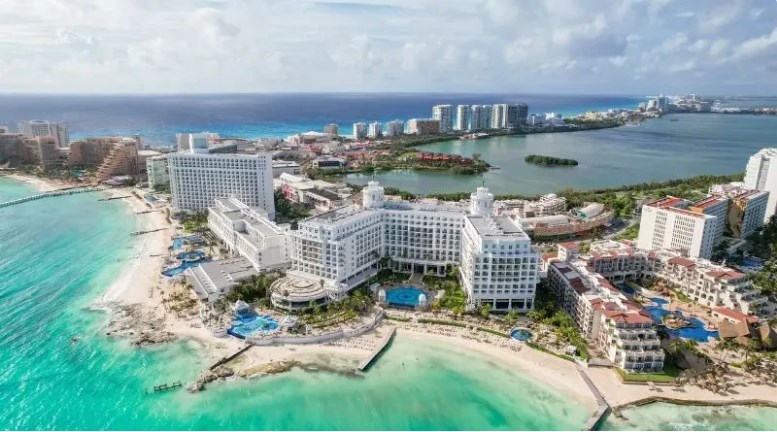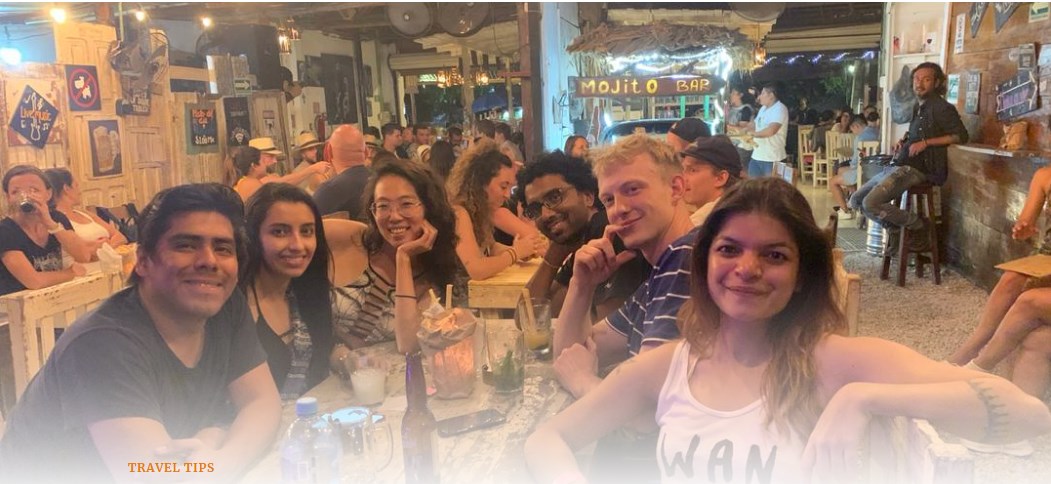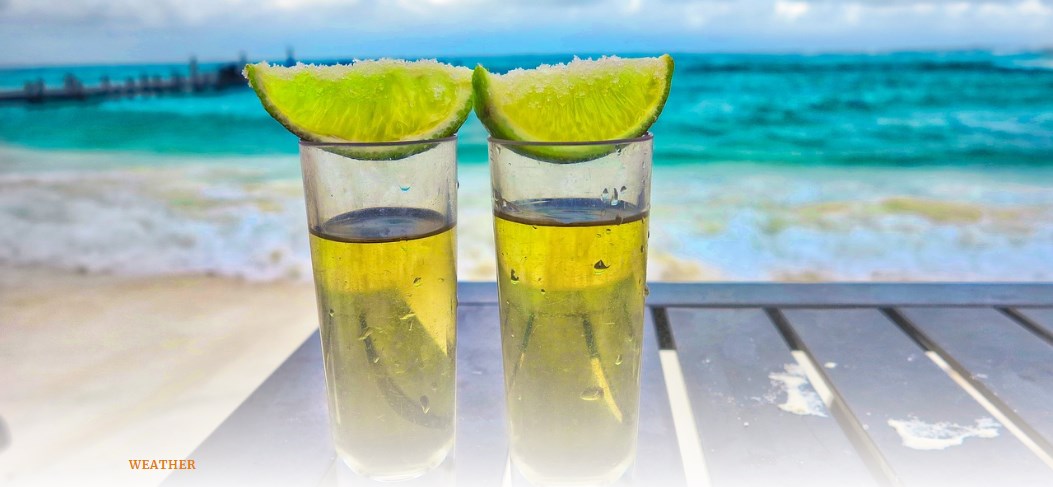Cancun Drinking Age Essential Laws Every Tourist Should Know Before Visiting Cancun, Mexico
Cancun, located on Mexico’s stunning Yucatán Peninsula, is renowned for its breathtaking beaches, vibrant nightlife, and rich cultural heritage. As one of the most popular tourist destinations in the world, Cancun attracts millions of visitors each year who come to enjoy its crystal-clear waters, luxurious resorts, and lively entertainment options. However, amidst the excitement of vacationing in such a paradise, it’s crucial for tourists to be aware of local laws and regulations, including the Cancun drinking age, to ensure a trouble-free experience.
Understanding the legal landscape of your travel destination is as important as planning your activities and accommodations. Cancun, like many tourist hotspots, has specific laws and customs that may differ significantly from those in your home country. Ignorance of these rules can lead to unintended legal issues, ranging from fines to more serious consequences.
This article aims to provide essential information about the key laws that tourists in Cancun should be aware of. By familiarizing yourself with these regulations, you can avoid common legal pitfalls and focus on enjoying your vacation. From visa requirements and vehicle insurance to public behavior and drug laws, we will cover the crucial aspects that will help you navigate Cancun’s legal environment with ease and confidence. Whether you’re planning to party, explore, or simply relax, knowing the local laws will help ensure that your visit remains enjoyable and stress-free.
1. Visa and Tourist Card Requirements
Overview of Visa Regulations
When traveling to Cancun, Mexico, understanding visa regulations is crucial for a hassle-free visit. Mexico requires all foreign visitors to have a valid tourist card, officially known as the Forma Migratoria Múltiple (FMM), or a resident visa, depending on the length and purpose of their stay. The FMM is generally used for short-term visits, while a resident visa is necessary for those planning to stay longer or establish residency.
The FMM is typically issued for stays up to 180 days. Travelers from most countries can obtain this card upon arrival at the airport or online before their trip. It is essential to have a valid FMM to legally enter and remain in Mexico. Without it, you could face penalties or be denied entry.
Explanation of the Need for a Valid Tourist Card or Resident Visa
A valid tourist card or resident visa is mandatory for anyone visiting Mexico. The tourist card allows for legal entry and stay in the country, providing proof that you are authorized to be there for a specified period. If you overstay the duration granted by the tourist card or reside in Mexico without the proper visa, you could face legal repercussions. These consequences can range from fines and deportation to difficulties obtaining visas for future visits. Additionally, overstaying your visa might result in being banned from entering Mexico for a specified period.
Consequences of Overstaying a Visa
Overstaying your tourist card or resident visa in Mexico can lead to several serious consequences. Initially, you may be subject to fines based on the number of days you have overstayed. The Mexican immigration authorities will determine the fine amount, which must be paid before you can leave the country. If you overstay for an extended period or have repeatedly violated visa regulations, you could face more severe penalties, such as deportation or a ban from re-entering Mexico for a specified duration.
In some cases, you may also experience difficulties obtaining visas for other countries in the future if you have a record of overstaying your visa. To avoid these issues, it’s essential to adhere to the terms of your tourist card or resident visa and seek extensions if necessary.
How to Obtain a Tourist Card
Obtaining a tourist card is a straightforward process. You can acquire the FMM online through the official Mexican immigration website or upon arrival at the airport in Mexico. If applying online, you’ll need to fill out a simple form with your personal details, travel information, and passport details. After completing the application and paying the required fee, you’ll receive a confirmation and your tourist card.
Alternatively, when arriving in Mexico, you can get the FMM at immigration control. You’ll need to present your passport and a completed application form, which can often be obtained and filled out at the airport. The immigration officer will process your application and issue your tourist card.
Where and How to Keep It Safe
Once you have your tourist card, it is crucial to keep it safe throughout your stay in Mexico. Store the card in a secure place, such as a travel wallet or a locked compartment in your luggage. Keep a digital copy or photograph of the card as a backup in case of loss or theft. You’ll need to present the FMM when departing Mexico, so ensure that it is easily accessible.
In case you lose your tourist card, report it to the local immigration office immediately. They can assist with obtaining a replacement and advise on any necessary steps to address the loss. Maintaining your tourist card in a secure manner will help ensure a smooth and enjoyable trip without any legal complications.
2. Vehicle Insurance and Driving Laws
Mandatory Vehicle Insurance
When renting a car in Cancun, understanding and complying with Mexico’s vehicle insurance requirements is essential for a trouble-free driving experience. In Mexico, liability insurance is mandatory for all vehicles, including rental cars. This insurance covers damages or injuries caused to other people or property in the event of an accident. It is crucial to ensure that your rental car insurance includes this liability coverage to avoid legal and financial troubles.
Rental car companies in Mexico typically offer basic liability insurance as part of the rental agreement. However, it is often advisable to opt for additional insurance coverage to protect yourself comprehensively. This can include policies that offer legal representation and bail bond coverage, which can be invaluable in the event of a serious accident or legal issue.
Recommendations for Insurance Policies
When selecting an insurance policy for your rental car, consider choosing a plan that goes beyond basic liability coverage. Here are a few key features to look for:
- Legal Representation: In case of a severe accident or legal dispute, having access to legal representation can be crucial. Some insurance policies provide coverage for legal fees, helping you navigate any legal challenges that may arise.
- Bail Bond Coverage: If you are involved in a serious incident, you may need to post bail to secure your release while awaiting court proceedings. An insurance policy that includes bail bond coverage can alleviate the financial burden of this requirement.
- 24-Hour Assistance: Ensure that your insurance provider offers 24-hour assistance. This can be beneficial if you encounter problems with your vehicle, need emergency support, or require guidance on handling an accident.
By opting for comprehensive insurance coverage, you can protect yourself against various risks and ensure that you are adequately covered in case of an unexpected event.
Driving Regulations
Driving in Mexico comes with its own set of rules and regulations that differ from those in other countries. Here is an overview of some key driving laws in Mexico that you should be aware of:
- Speed Limits: Adhere to posted speed limits, which are typically 60 km/h (37 mph) in urban areas and 100-110 km/h (62-68 mph) on highways. Speed limits may vary, so always watch for road signs.
- Seat Belts: The use of seat belts is mandatory for all passengers in the vehicle. Failure to wear a seat belt can result in fines.
- Drunk Driving: Mexico has strict drunk driving laws with a legal blood alcohol content limit of 0.8%. Driving under the influence is a serious offense and can lead to severe penalties, including fines, imprisonment, or deportation.
- Traffic Signals and Signs: Obey all traffic signals and road signs. Traffic enforcement is stringent, and violations can lead to fines or other legal consequences.
- Driving Licenses: Ensure that you carry a valid driving license. While an International Driving Permit (IDP) is not always required, it is advisable to have one, especially if your license is not in Spanish.
Importance of Having Valid Insurance for Rental Vehicles
Having valid insurance for your rental vehicle is crucial for several reasons. First, it protects you financially in case of an accident, covering potential damages and injuries. Without adequate insurance, you could be liable for substantial costs, including repairs, medical expenses, and legal fees.
Second, valid insurance ensures that you comply with local laws. Driving without proper insurance can lead to fines, vehicle impoundment, or legal trouble. In the event of an accident, having comprehensive insurance can provide peace of mind and help you manage any arising issues effectively.
In summary, securing the right insurance policy and understanding Mexico’s driving regulations are vital steps for a safe and enjoyable driving experience in Cancun. Be sure to choose insurance that offers extensive coverage and stay informed about local driving laws to avoid any complications during your trip.
3. Public Behavior and Alcohol Consumption
Public Intoxication
In Cancun, as in many other destinations, it’s important to be aware of laws related to public behavior, particularly regarding alcohol consumption. Public intoxication and disorderly behavior are not tolerated and can result in legal consequences. Mexico has strict regulations against being drunk and disorderly in public spaces. This means that behaving in a disruptive or aggressive manner while intoxicated can lead to fines or arrest.

The laws aim to maintain public order and safety. If you are found to be causing a disturbance due to excessive drinking, you may be detained by local authorities. Such detentions can lead to fines, legal proceedings, or even deportation for foreign tourists. Therefore, it’s crucial to exercise moderation and ensure that your behavior remains respectful and controlled while in public spaces.
Drunk Driving
Drunk driving is a serious offense in Mexico, and the country enforces stringent laws to combat this issue. Mexico has a legal blood alcohol content (BAC) limit of 0.8% for drivers, which is relatively low compared to some other countries. This limit applies to all drivers, including tourists. Exceeding this limit can result in severe legal repercussions.
The consequences of drunk driving in Mexico are significant. If caught driving under the influence, you may face immediate arrest, hefty fines, and vehicle impoundment. Additionally, if your impaired driving results in an accident, the legal and financial consequences can be even more severe. The Mexican legal system takes drunk driving seriously, and there are no special privileges for foreigners. To avoid legal trouble, it is best to avoid drinking and driving altogether. Consider using public transportation, taxis, or rideshare services if you plan to consume alcohol.
Minimum Legal Drinking Age
In Cancun, the minimum legal drinking age is 18 years old. This applies to the purchase and consumption of alcohol in bars, restaurants, and other establishments. The legal drinking age is enforced rigorously, and establishments are required to check the age of patrons who appear to be underage.
To purchase alcohol, you will need to present a valid photo identification. Acceptable forms of ID typically include a passport or a driver’s license. Bars, clubs, and stores will request to see this identification to verify that you are of legal drinking age. Failure to provide valid ID when purchasing alcohol can result in being refused service.
In summary, understanding and adhering to Cancun’s laws regarding public behavior and alcohol consumption is essential for a smooth and enjoyable visit. Avoiding public intoxication and ensuring responsible drinking will help you steer clear of legal issues. Additionally, respecting the legal drinking age and having appropriate identification on hand will facilitate a hassle-free experience when enjoying Cancun’s vibrant nightlife. By staying informed and compliant with these regulations, you can focus on making the most of your time in this beautiful destination.
4. Alcohol Consumption Laws
Regulations on Alcohol Sales
In Cancun, recent changes to alcohol consumption laws aim to regulate and control the sale and distribution of alcoholic beverages. These regulations, which came into effect in February 2019, are designed to address issues related to excessive drinking and maintain public order. Understanding these new laws is essential for both visitors and locals to ensure compliance and avoid any potential legal issues.
One of the significant changes introduced by the new alcohol law is the restriction on the sale of packaged alcohol. Under this regulation, the sale of packaged alcoholic beverages, such as bottles of beer, wine, or spirits, is prohibited past 11:00 p.m. This restriction is intended to curb excessive drinking and minimize disturbances during late hours. Retailers, including convenience stores and supermarkets, must cease selling packaged alcohol at this time.
Restrictions on Packaged Alcohol Sales Past 11:00 p.m.
The restriction on packaged alcohol sales after 11:00 p.m. means that if you plan to purchase alcohol for consumption later in the evening or for take-home purposes, you need to do so before this cutoff time. This rule is strictly enforced, and violations can result in fines or other penalties for businesses. For tourists, it’s important to plan ahead and ensure that any alcohol purchases are made well before the 11:00 p.m. deadline.
Additionally, these restrictions apply not only to retail outlets but also to any establishments that sell packaged alcohol for off-premises consumption. This regulation helps manage alcohol consumption in public areas and ensures a safer environment for everyone. If you are staying in a hotel or rental property and wish to enjoy a drink in the evening, consider buying your alcohol earlier in the day or utilizing in-house services that may operate under different rules.
Special Permits for Bars to Sell Alcohol Until 3:00 a.m.
While packaged alcohol sales are restricted after 11:00 p.m., bars and nightclubs in Cancun have the option to extend their alcohol sales hours by obtaining special permits. These permits allow licensed establishments to continue serving alcohol until 3:00 a.m. This provision is particularly relevant for those looking to experience Cancun’s vibrant nightlife, as many bars and clubs operate under these extended hours.
Establishments seeking to sell alcohol beyond the standard hours must apply for and secure these special permits from local authorities. This process involves compliance with additional regulations and potentially higher fees. Bars and nightclubs that are granted these permits must adhere to strict guidelines to maintain public order and safety, including monitoring noise levels and managing crowd behavior.

For tourists, understanding this aspect of local regulations is important for planning your nightlife activities. If you prefer to stay out late and enjoy extended hours at bars or clubs, verify that the venues you plan to visit have the appropriate permits. Most popular nightlife spots in Cancun are well-versed in these regulations and will operate within the legal hours, but checking ahead can help ensure that your plans go smoothly.
In summary, Cancun’s alcohol consumption laws, particularly the restrictions on packaged alcohol sales and the provision for special permits, are designed to promote a safer and more controlled environment. By being aware of these regulations, you can better plan your activities and enjoy your time in Cancun while staying within the bounds of local laws.
5. Drug Laws
Possession and Trafficking
In Cancun, as throughout Mexico, drug laws are stringent and strictly enforced. Possession and trafficking of illegal drugs are federal offenses that carry severe penalties. Mexico’s drug laws target both the possession of illicit substances for personal use and the trafficking of drugs, which is treated with particular severity.
If you are found in possession of illegal drugs, you could face significant legal consequences, including hefty fines and imprisonment. The severity of the penalty often depends on the type and quantity of the drug involved. For instance, possession of small amounts may result in fines or short-term imprisonment, whereas trafficking or possession of larger quantities can lead to long-term imprisonment and substantial fines. Mexican authorities do not differentiate between tourists and locals in their enforcement of these laws; foreign visitors are held to the same legal standards and can face deportation in addition to criminal charges.
Drug trafficking, which involves the distribution or sale of illegal substances, is treated as a serious criminal offense. Those involved in drug trafficking can face extended prison sentences, severe fines, and other legal ramifications. The Mexican government employs rigorous measures to combat drug trafficking, and law enforcement agencies actively pursue offenders, making it critical to avoid any involvement with illegal drugs.
Controlled Medications
When it comes to controlled medications, the regulations are somewhat different but still stringent. Controlled medications, which are drugs prescribed by a doctor for medical conditions, are subject to specific regulations to prevent abuse. If you need to carry controlled medications with you while traveling to Cancun, it’s important to follow the guidelines to avoid any legal issues.
Firstly, ensure that you carry a copy of your prescription or a doctor’s note detailing the necessity of the medication. This documentation should include your name, the medication name, dosage, and the purpose of the medication. Having this documentation helps verify that the medication is for legitimate medical use and not for illicit purposes.
When traveling with controlled medications, keep them in their original packaging with the prescription label clearly visible. This practice helps in easily identifying the medication as prescribed and ensures that it complies with both Mexican regulations and those of your home country.

It’s also advisable to carry only the quantity of medication you need for the duration of your trip. Carrying large amounts of controlled substances can raise suspicions and potentially lead to legal complications. If you have any doubts or need clarification, contact the Mexican consulate or embassy before your trip to understand specific regulations and requirements.
In summary, Mexico enforces strict drug laws that encompass both illegal drug possession and trafficking, with severe penalties for violations. For controlled medications, proper documentation and adherence to regulations are crucial to avoid legal issues. By being informed and prepared, you can ensure a smooth and trouble-free visit to Cancun while complying with local drug laws.
6. Weapons and Firearms
Prohibition on Weapons
Mexico has stringent laws concerning the possession and use of weapons, including firearms, knives, and other potentially dangerous items. These regulations are designed to ensure public safety and minimize violence. Understanding and adhering to these laws is crucial for both residents and tourists to avoid legal complications.
In Mexico, the possession of firearms is highly regulated and generally restricted to law enforcement and military personnel. Private ownership of firearms is permitted only under strict conditions. To legally own a firearm in Mexico, individuals must obtain a permit from the Mexican Army, which involves a thorough background check and justification of need. For most tourists, bringing firearms into the country is not permitted and is considered a serious offense.
Additionally, the possession and carrying of weapons such as knives and other sharp objects are also regulated. While small pocket knives might seem innocuous, carrying them in public can be problematic. Mexican law prohibits the carrying of weapons in public places, including concealed or open carry of knives. Even small, everyday items like pocket knives can be interpreted as weapons, leading to legal issues if found in your possession.
Recommendations on Leaving Pocket Knives and Other Weapons at Home
To avoid potential legal troubles, it is highly recommended that tourists leave any form of weapon, including pocket knives, at home. Here are a few key recommendations to ensure you stay within legal boundaries:
- Avoid Bringing Knives: Pocket knives and similar tools, even if they are intended for everyday use, are considered weapons under Mexican law. Carrying such items can lead to fines, detention, or even arrest. If you need a knife for specific purposes, consider purchasing one locally if absolutely necessary, and ensure it complies with local regulations.
- Leave Firearms at Home: Bringing firearms into Mexico is not only illegal but also subject to severe penalties. The Mexican government maintains strict controls over firearms to prevent crime and violence. Do not attempt to bring any type of firearm into the country. If you have any firearms for hunting or sporting purposes, arrange for them to be stored securely at home or with a licensed facility before traveling.
- Check Regulations Before Traveling: Before your trip, familiarize yourself with the specific regulations regarding weapons and firearms for the region you are visiting. This can be done by consulting the Mexican consulate or embassy. They can provide detailed information on what is permissible and help you understand the legal implications of bringing certain items into the country.
- Avoid Carrying Any Suspicious Items: If you are unsure whether an item might be classified as a weapon, it is better to leave it at home. This precaution helps you avoid potential misunderstandings or legal issues. The aim is to ensure that your trip remains enjoyable and free from unnecessary complications.

In summary, Mexico’s laws regarding weapons and firearms are stringent, and possession of such items is closely monitored. To ensure a hassle-free visit, avoid bringing any form of weapon, including pocket knives, and check local regulations for any additional restrictions. By following these guidelines, you can prevent legal issues and focus on enjoying your time in Cancun.
7. Fishing Regulations
Fishing Licenses
Fishing in Mexican waters is subject to strict regulations, designed to manage and preserve the country’s rich marine resources. One of the key requirements for anyone planning to fish in these waters is obtaining a valid fishing license. This rule applies to both residents and tourists, and understanding the specifics can help ensure compliance and avoid legal issues.
In Mexico, every person aboard a boat engaged in fishing activities must possess a valid fishing license. This regulation is intended to ensure that all fishing activities are conducted legally and that the resources are managed sustainably. The requirement applies regardless of the individual’s age or whether they are actively participating in fishing. Therefore, even if some individuals on the boat are not fishing but are simply accompanying others, they must still hold a license.
To obtain a fishing license, you need to apply through the Mexican government’s environmental or fisheries authorities. The process typically involves submitting personal information and paying a fee. Licenses can often be purchased online, at local government offices, or through authorized agents. It’s crucial to obtain the license before embarking on your fishing trip, as operating without one can lead to significant fines and confiscation of equipment.
Exemptions for Fishing from Land
While the requirement for a fishing license is stringent for those fishing from boats, there is an important exemption for those who choose to fish from land. In Mexico, fishing from shore—whether from beaches, piers, or other land-based locations—generally does not require a fishing license. This exemption provides a more accessible option for casual fishermen and those who prefer to fish without the complexities of obtaining a license for boating.
However, it’s essential to note that while no license is needed for shore fishing, local regulations and rules still apply. There may be specific areas where fishing is prohibited or where additional restrictions are in place to protect marine life. It is advisable to check with local authorities or fishing clubs to understand any regional regulations or restrictions that might affect your fishing activities.

Additionally, while fishing from land may not require a license, adhering to general fishing regulations and practices is still important. This includes respecting catch limits, using appropriate gear, and following any rules regarding protected species or fishing seasons. By doing so, you contribute to the conservation efforts and help maintain the health of Mexico’s marine ecosystems.
In summary, obtaining a valid fishing license is a mandatory requirement for fishing in Mexican waters from a boat, applying to all individuals on board. However, if you are fishing from land, you are typically exempt from this requirement. Regardless of where you fish, it is crucial to stay informed about local regulations to ensure a legal and enjoyable fishing experience in Mexico.
8. Political Activity Restrictions
Avoiding Political Involvement
In Mexico, there are specific regulations concerning political activity, particularly with regard to foreigners. These laws are designed to maintain public order and ensure that political processes are not disrupted by non-citizens. Understanding these restrictions is crucial for tourists and expatriates to avoid legal complications and potential issues with local authorities.
Foreigners are generally prohibited from participating in political activities in Mexico. This includes involvement in demonstrations, protests, and other forms of political engagement. The rationale behind these laws is to ensure that the political landscape remains unaffected by external influences and to prevent any actions that could be perceived as interference in the country’s internal affairs. Engaging in political activities can be seen as a violation of these regulations and can lead to serious consequences.
Risks Associated with Involvement in Demonstrations or Protests
Participating in political demonstrations or protests in Mexico can expose foreigners to various risks. These risks include legal repercussions, such as fines, detention, or even deportation. Mexican authorities enforce laws against foreign involvement in political activities strictly, and violations can lead to arrest and other legal consequences.
- Legal Repercussions: Foreigners who participate in unauthorized political activities may face arrest or detention by local law enforcement. This is because such involvement is considered a breach of the laws regulating political participation. The penalties can include fines, legal charges, or even deportation, depending on the severity of the involvement and the specific circumstances.
- Deportation: In cases of significant political involvement or disruption, foreigners may be subject to deportation. This action is taken to prevent further interference in local political matters and to maintain public order. Deportation can have lasting effects on future travel and visa applications, impacting one’s ability to visit Mexico or other countries in the future.
- Safety Concerns: Beyond legal issues, participating in political demonstrations or protests can pose safety risks. Such events can sometimes become volatile, leading to physical confrontations or violence. As a foreigner, being involved in such situations can put you at risk of harm, especially if the demonstration escalates or if you are mistaken for a participant who is violating local laws.
- Reputational Damage: Involvement in political activities can also damage personal and professional reputations. News of such involvement can spread, affecting how you are perceived by others and potentially impacting your future travel or employment opportunities.

To avoid these risks, it is advisable for tourists and expatriates to refrain from participating in any form of political activity while in Mexico. If you encounter political demonstrations or protests, it is best to observe from a distance and avoid engaging in any activities that could be perceived as political involvement.
In summary, Mexico’s laws prohibit foreigners from participating in political activities, including demonstrations and protests. Engaging in such activities can lead to serious legal consequences, including fines, detention, or deportation. Additionally, there are safety and reputational risks associated with political involvement. By staying clear of political activities, you can ensure a trouble-free visit and maintain good standing with local authorities.
9. Handling Arrests and Detentions
Procedure if Arrested
If you find yourself arrested or detained in Mexico, understanding the proper procedure is crucial to ensure that your rights are protected and that you navigate the situation effectively. Here are the key steps to follow:
- Stay Calm and Comply: The first and foremost step is to remain calm and comply with the instructions given by law enforcement officers. Aggressive behavior or non-compliance can escalate the situation and lead to additional charges or complications.
- Request to Contact Your Embassy or Consulate: As soon as possible, you should request to contact your country’s embassy or consulate. Under international law, you have the right to notify your embassy or consulate if you are detained. This request should be made clearly and politely to the arresting officers.
- Document Details: If possible, take note of the arresting officers’ names, badge numbers, and the location of your detention. This information can be useful later for your legal representation or in any investigations that may follow.
- Do Not Sign Untranslated Documents: If you are asked to sign any documents, make sure you understand their content first. If the documents are in Spanish and you do not understand them, request a translator or legal assistance before signing.
- Exercise Your Right to Remain Silent: You have the right to remain silent until you have legal representation. It is generally advisable to provide only basic information and to wait for your lawyer to arrive before making any detailed statements.
Importance of Contacting Your Embassy or Consulate
Contacting your embassy or consulate is a crucial step if you are arrested or detained in Mexico. The embassy or consulate can provide vital assistance in several ways:
- Legal Assistance: The embassy or consulate can help you find a local lawyer who is familiar with Mexican laws and can represent you effectively. They can provide recommendations for legal professionals and ensure that you receive appropriate legal representation.
- Communication with Family and Friends: The embassy or consulate can notify your family or friends about your situation. This helps to keep your loved ones informed and ensures that they can provide support or assistance if needed.
- Consular Visits: Consular officials can visit you in detention to check on your welfare and provide support. Their presence can help ensure that you are treated fairly and that your rights are upheld.
- Intervention with Local Authorities: While the embassy or consulate cannot interfere directly in legal proceedings, they can communicate with local authorities to ensure that you are being treated according to international standards and that due process is followed.
- Support with Documentation and Translation: The embassy or consulate can assist with the translation of documents and help you understand the legal process you are undergoing. This support is essential to navigate the legal system effectively.

In summary, if you are arrested or detained in Mexico, it is crucial to stay calm, comply with authorities, and request contact with your embassy or consulate as soon as possible. The embassy or consulate can provide essential support, including legal assistance, communication with family, and intervention with local authorities to ensure that your rights are protected. By following these steps, you can better manage the situation and seek appropriate help during a challenging time.
Understanding and adhering to local laws is crucial for a smooth and enjoyable visit to Cancun. Mexico, while offering a vibrant and exciting travel experience, has specific regulations and customs that travelers must follow to ensure their stay remains trouble-free. From visa and tourist card requirements to strict laws regarding public behavior, alcohol consumption, and drug possession, being informed about these regulations helps avoid legal issues and enhances your overall experience.
Staying informed and cautious is key to navigating the legal landscape of Cancun. Before traveling, familiarize yourself with local laws and regulations, including the Cancun drinking age, and be aware of any changes or specific rules that may apply to tourists. This preparation can prevent misunderstandings and ensure that you respect the legal framework of your destination.
By staying informed, adhering to local laws, and taking these precautions, you can enjoy a memorable and trouble-free visit to Cancun, fully immersing yourself in the beauty and culture of this popular destination.
Age -Cade Beloso Age A Comprehensive Career Retrospective of LSU’s Premier First Baseman and Power Hitter.
A Comprehensive Guide to Determining the Manufacture American Water Heater Age
USGA Age 10 Breaking Barriers – Allisen Corpuz, the 10 Year Old Prodigy Competing in the USGA Championship
Tiffany Pesci Age The Journey of Joe Pesci’s Daughter Amid Fame, Controversy, and Personal Triumph
Test Age Calculator Understanding Age Calculators: Systems, Cultures, and Calculation Methods
Saber Toothed Tiger Ice Age NYT Deciphering ‘A Star is Born’: An In-Depth Analysis of a Thematic Crossword Puzzle
Norissa Valdez Age An In-Depth Look at the Life, Career, and Achievements of a Social Media Sensation



 | Sitemap | Mail
| Sitemap | Mail